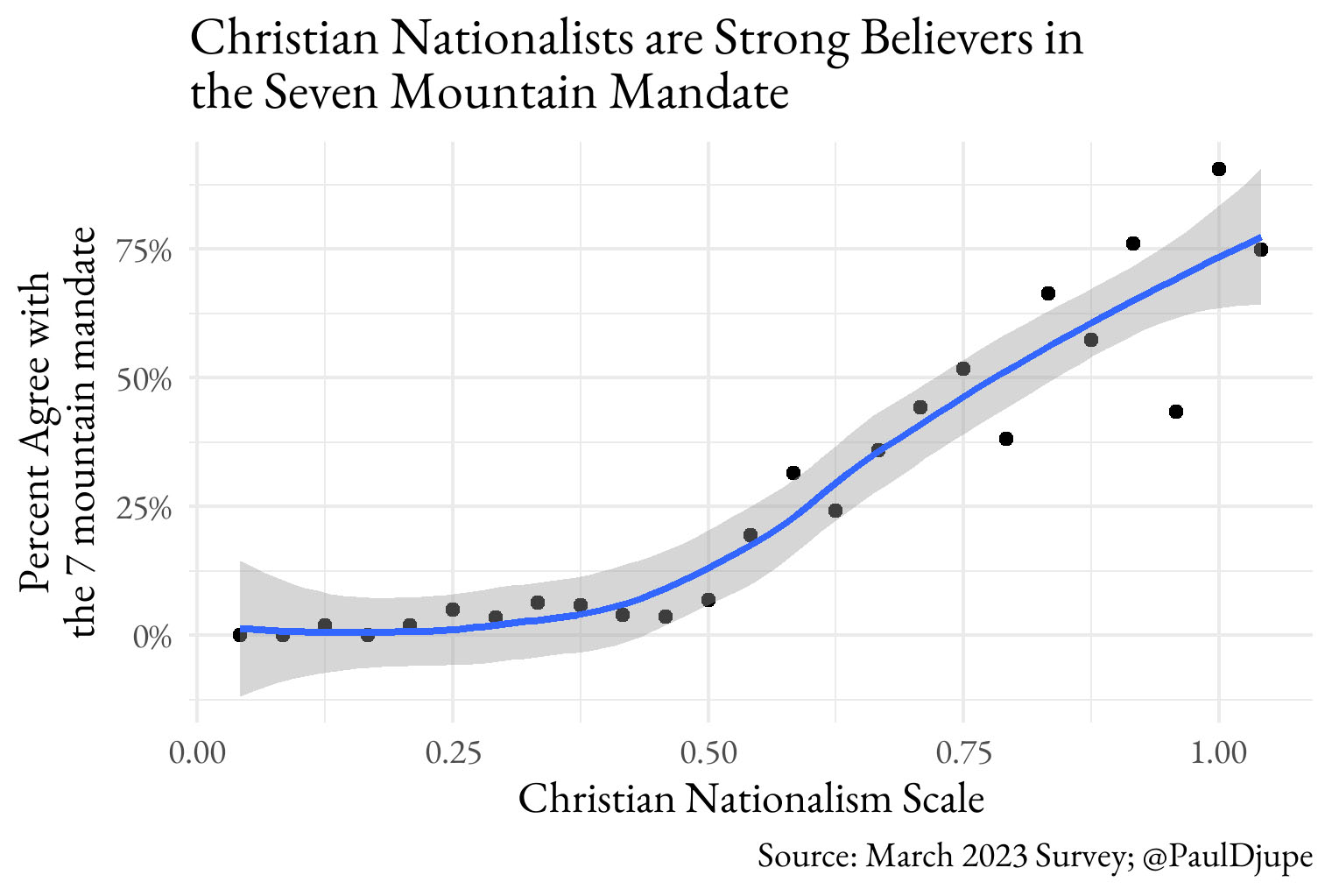In an interview, Perry said that some of the Baylor questions were a start, but the answers they yielded were too vague. He and Whitehead, along with other researchers, have fielded several national surveys in the past two years that Perry said have helped differentiate Christian nationalism from other, adjacent beliefs.
In 2022, the Pew Research Center found that 60% of Americans surveyed agreed the nation’s founders intended the country to be a Christian nation. Forty-five percent agreed the U.S. should be a Christian nation. But even among those who say the country should be a Christian nation, only about a quarter said the country should be declared a Christian nation (28%) or should advocate for Christian values (24%). About a third said the government should stop enforcing the separation of church and state.
A recent survey from the Public Religion Research Institute found that 10% of Americans embrace Christian nationalism, while an additional 19% are sympathetic to its ideals.
Paul Djupe. Courtesy photo
Paul Djupe, a political scientist at Denison University and co-author of an upcoming book called “The Full Armor of God,” recently retested some of the Baylor survey questions with some modifications. He wanted to know, for example, what people meant by America being a Christian nation and what it means to promote Christian values.
Does the latter mean promoting a more just society or one that sees everyone as made in God’s image? Does it mean values like loving your neighbor? Or does it mean enforcing Christian views over other views?
When Djupe modified Baylor’s statement “The federal government should advocate Christian values” to add “for the benefit of Christians,” he found there was little drop-off in support for that statement, leading him to suspect that those who support that statement had a more exclusive view of those values.
His survey also asked people to respond to the statement: “The Church should have a final say over whether legislation becomes law in the U.S.” Those who supported such a veto correlated highly with those who scored high on Baylor’s Christian nationalist scale.
RELATED: State Rep. James Talarico: Christian Nationalism in Texas Is an ‘Oxymoron’
Djupe found enduring support for a doctrine known as the “Seven Mountains Mandate,” which claims Christians should rule in seven sectors: home, religion, schools, business, media, entertainment and government.
The idea was popularized by leaders such as Bill Bright, founder of Campus Crusade, a prominent evangelical campus ministry now known as Cru, and Loren Cunningham, longtime leader of Youth with a Mission, whose “7 spheres of influence” echoed the seven mountains.

“Christian Nationalists are Strong Believers in the Seven Mountain Mandate” Graphic courtesy of Paul Djupe
It was later adopted by charismatic leaders such as Lance Wallnau, known for his prophecies that Trump was God’s anointed.
“It’s like king of the mountain, only with much higher stakes,” said Djupe.
Matthew D. Taylor, a Protestant scholar at the Institute for Islamic-Christian-Jewish Studies in Maryland, says that the idea of dominion over all areas of life is central to what he refers to as Christian supremacy, a term he prefers to Christian nationalism.
Christian supremacy, he said, is more about Christians ruling over others. Taylor, creator of the “Charismatic Revival Fury” podcast series, which looks at the role charismatic Christian beliefs played on Jan. 6, pointed to prophets such as Green, who supported Trump because God told them who he wanted to be president.
“That’s deeply anti-democratic,” he said. “You can say, God has appointed this person. But that is not how democracy works. “


